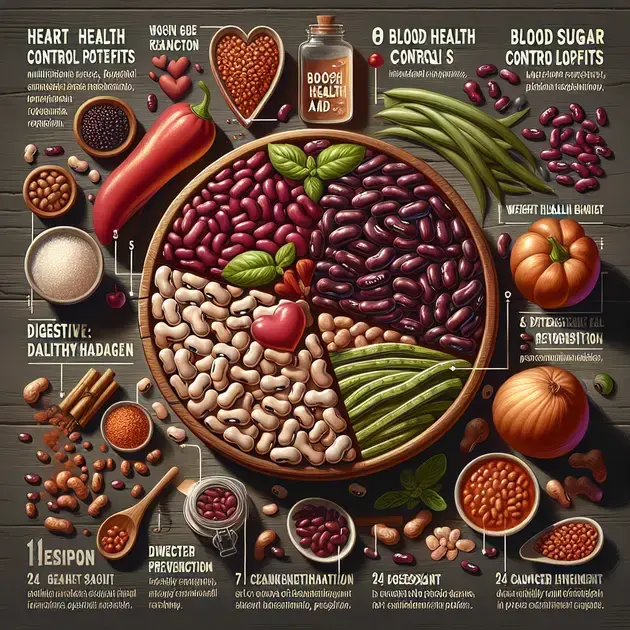Kidney beans are frequently associated with stomach discomfort, bloating, and gas. Consuming these bean-shaped legumes can also lead to digestive upset. However, it is important not to completely exclude them from your diet, as these issues typically occur when they are not properly cooked or overeaten. In fact, kidney beans should be included as part of a balanced diet for the following 8 reasons:
1. Nutritional value: Kidney beans are a great source of essential nutrients, including protein, fiber, iron, folate, magnesium, and potassium.
2. Heart-healthy: Their high fiber content helps in reducing cholesterol levels and maintaining cardiovascular health.
3. Blood sugar control: The low glycemic index of kidney beans can assist in regulating blood sugar levels, making them beneficial for individuals with diabetes.
4. Weight management: The combination of protein and fiber in kidney beans can promote feelings of fullness, ultimately aiding in weight loss or weight maintenance.
5. Digestive health: Despite the initial digestive discomfort some may experience, kidney beans can actually improve digestive health due to their fiber content.
6. Antioxidant properties: Kidney beans contain various antioxidants, such as flavonoids and anthocyanins, which help protect the body against oxidative stress and inflammation.
7. Cancer prevention: The antioxidants and dietary fiber found in kidney beans have been linked to a reduced risk of certain cancers, particularly colorectal cancer.
8. Versatile in recipes: Kidney beans can be incorporated into a wide range of dishes, including stews, salads, soups, and even desserts.
Therefore, while kidney beans may cause initial digestive issues if not properly prepared or consumed in excess, they offer numerous health benefits and should be included as part of a varied and well-balanced diet.
